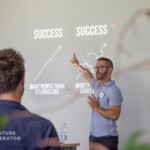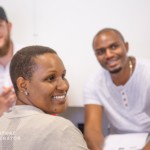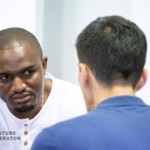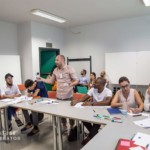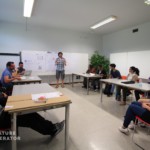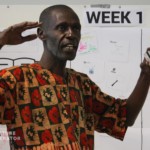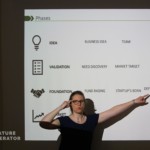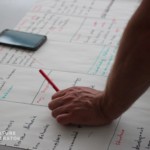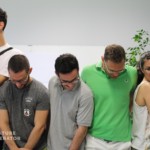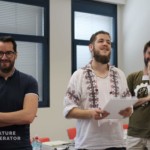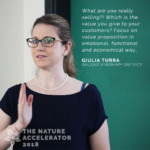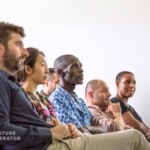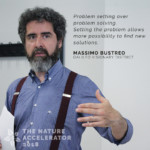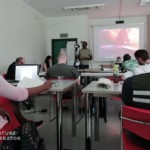Hack startups’ business models
A business model is how a business can create, deliver and capture values, while making money or achieving what the company defines as success (Giulia Turra | Galileo Visionary District). Why is a business model important for startups? Aren’t startups all about doing something different? Perhaps yes, there may be successful startups who completely break the box. But before anything, what is a start up? One definition is that it is a “temporary organization used to search for a repeatable and scalable business model” (Steve Blank). In other words, startups are creative in creating their own business models but there is a structure nonetheless.
If we accept the definitions of a business model and startups, a startup’s business model, then, must also be repeatable and scalable. Categorizing the process of a startup as the following — idea, validation, foundation, and market — we can see that a business model happens during the validation stage where a team discovers a need and identifies a market target. But of course a startup business model is much more than this. What the startup is selling, the nature of the product or service (disruptive, incremental or blue ocean), makes the business model more nuanced than a few categories.
Why start with business model hacking?
Each startup has its own business model and may think it has the best business model. But does it really? We kick off the first week of the Nature-Accelerator with this question in mind. Week 1, managed by Etifor in collaboration with the Galileo Visionary District, provides the startups with critical tools to rethink their business models with their colleagues. Perhaps after hacking their models with new people, in a different context, they may see them in a different light over the course of two months. After the Nature-Accelerator, our 8 startups may walk away with a completely different model, modified one or even the same model but strengthened with other execution tools we provide.
Giulia Turra and Massimo Bustreo of the Galileo Visionary District led the first week trainings at the Nature-Accelerator, to challenge assumptions and dig in deep into the rich possibilities of a startup business model. With Giulia, who works with startups as the executive manager of Start Cube, our 8 startups put their business models on a canvas, analyzing each element while focusing on their value propositions. Comprised of three assets — emotional, functional and economic value — value proposition helps guide the rest of the business model. What is the reason why customers would buy a product or employ a service? With Massimo, a work and organizational psychologist, we stepped outside of the business mindset momentarily to visually see how we think to rethink creativity and originality. Often we are trained to solve problems. But even more pertinent for startups who break from the usual business ideas and models, is how to set problems. Massimo emphasized that setting problems, not solving problems can give us more possibilities to find new or perhaps the only solutions. Starting from The Little Prince’s way of seeing the elephant inside a boa constrictor to connecting a number of dots with limited straight line moves (which is impossible if we accept the default frame), our 8 startups trained how to stop restricting ourselves with thoughts, and do and break ourselves free. Friday culminated in putting everything together: to destroy each startup and to rebuild it with creative ideas.
Many of our startuppers enjoyed this “Destroy” and “Rebuild” exercise. “For me it was the best thing of this week,” says Rodrigo Aranda from Sintala design, a startup producing furniture without felling trees, based in Spain. “I like it so much because in this exercise, I can learn what others think about my company.” Joseph Kadendula form Central Park Bees who offers beekeeping as a sustainable, alternative income source for farmers in Tanzania said that based on his experience he thought he had a solid business model, a critical part of any business. But during this exercise he found out he could communicate more clearly some parts of his business model that could be confusing. Now he feels more comfortable. “The ‘destroy’ activity was the best part because it made me realize the weakest part of my business model and the components I am missing. Now I am now trying to put them together,” says Brigitta Faustin from OBRI Tanzania who helps farmers cultivate high quality sunflower seeds for cooking oil in Tanzania.
Wrapping up Week 1 and looking ahead
Through their business models, our 8 startups have presented their aspirations and challenges. Already they have developed a keen eye for each others’ startups potential opportunities and threats. Together with their trainers, mentors and startup colleagues, they are ready to jump ahead to market analysis for Week 2!
FIND OUT MORE
MEET THE STARTUPS: programme public presentation event
STARTUP PORTFOLIO: discover more about our selected startups
ECOSTAR CALENDAR: register to our events!
Developed by ECOSTAR and powered by Fledge, the Nature-Accelerator is an intensive eight week acceleration programme for nature-based startups. As part of ECOSTAR initiative, Etifor Srl and the University of Padova, promote and manage the acceleration programme.



